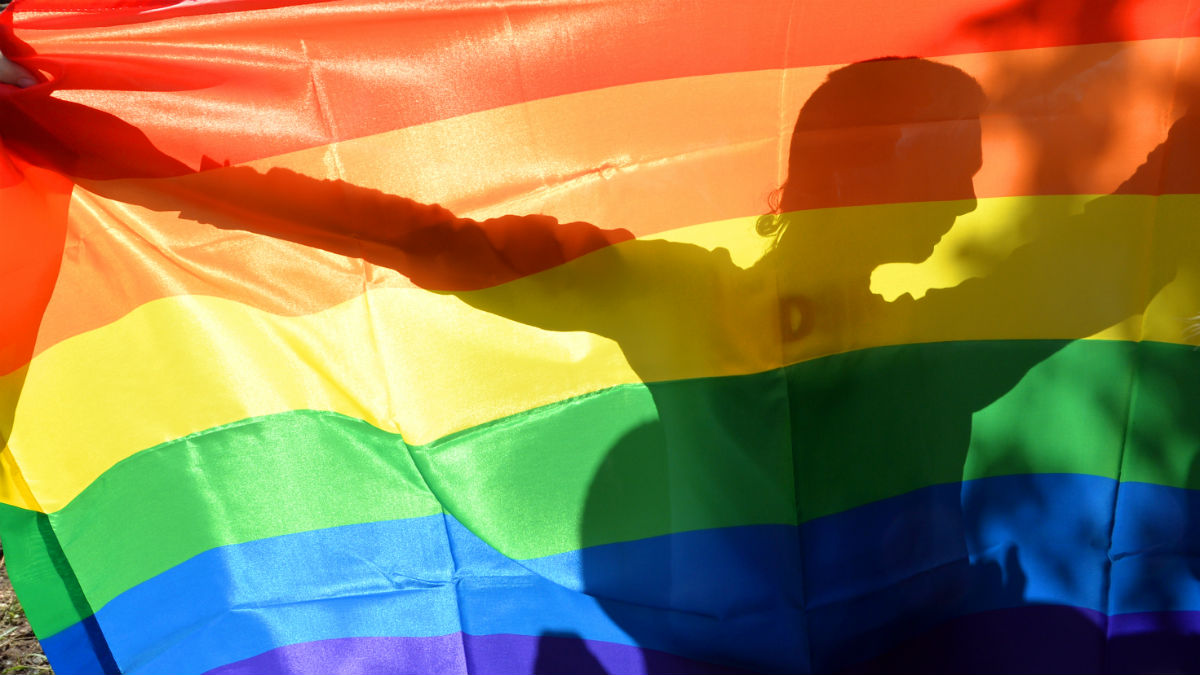Muslim nations ban LGBT groups from UN meeting on AIDS
US ambassador Samantha Power warns that such a move 'severely damages the credibility' of the UN

A free daily email with the biggest news stories of the day – and the best features from TheWeek.com
You are now subscribed
Your newsletter sign-up was successful
Groups representing lesbian, gay, bisexual and transgender people have been blocked from attending a high-level United Nations meeting on tackling the HIV/AIDS epidemic next month.
The ban was requested by the Organisation of Islamic Cooperation, made up of 57 states including Egypt, Iran, Saudi Arabia and the United Arab Emirates, and sparked immediate global condemnation.
What has happened?
The Week
Escape your echo chamber. Get the facts behind the news, plus analysis from multiple perspectives.

Sign up for The Week's Free Newsletters
From our morning news briefing to a weekly Good News Newsletter, get the best of The Week delivered directly to your inbox.
From our morning news briefing to a weekly Good News Newsletter, get the best of The Week delivered directly to your inbox.
The group did not give an explicit reason for the ban, but Samantha Power, the US ambassador to the UN, said the vetoed NGOs "appear to have been chosen for their involvement in LGBTI, transgender or youth advocacy".
They include the Ishtar Men Who Have Sex With Men group from Kenya, the Asia Pacific Transgender Network from Thailand and the Eurasian Coalition on Male Health, based in Estonia.
"It's not the first time that the UN has seen tensions over LGBT rights," says Pink News. Last year Russia attempted to block the UN from extending benefits to staff members who are in same-sex marriages. It received the backing from countries including China, Pakistan and Saudi Arabia, with the latter saying it believed such relationships were "morally unacceptable". The motion failed.
"The body also sparked fury by appointing Saudi Arabia, one of the world's most repressive and homophobic countries, as the chair of a UN panel on human rights," says the LGBT rights website.
A free daily email with the biggest news stories of the day – and the best features from TheWeek.com
What has the reaction been?
The US, EU and Canada have written to the UN general assembly president Mogens Lykketoft to express their opposition to the move.
Power said the movement to block the participation of NGOs "on spurious or hidden grounds" is becoming "epidemic" and "severely damages the credibility" of the UN.
"Given that transgender people are 49 times more likely to be living with HIV than the general population, their exclusion from the high-level meeting will only impede global progress in combating the HIV/Aids pandemic," she added.
Power has long been a vocal campaigner for LGBT rights, says the Gay Times. "In March she took her Russian counterpart to a Broadway production about closeted gay people."
-
 How to Get to Heaven from Belfast: a ‘highly entertaining ride’
How to Get to Heaven from Belfast: a ‘highly entertaining ride’The Week Recommends Mystery-comedy from the creator of Derry Girls should be ‘your new binge-watch’
-
 The 8 best TV shows of the 1960s
The 8 best TV shows of the 1960sThe standout shows of this decade take viewers from outer space to the Wild West
-
 Microdramas are booming
Microdramas are boomingUnder the radar Scroll to watch a whole movie
-
 Epstein files topple law CEO, roil UK government
Epstein files topple law CEO, roil UK governmentSpeed Read Peter Mandelson, Britain’s former ambassador to the US, is caught up in the scandal
-
 Iran and US prepare to meet after skirmishes
Iran and US prepare to meet after skirmishesSpeed Read The incident comes amid heightened tensions in the Middle East
-
 Israel retrieves final hostage’s body from Gaza
Israel retrieves final hostage’s body from GazaSpeed Read The 24-year-old police officer was killed during the initial Hamas attack
-
 China’s Xi targets top general in growing purge
China’s Xi targets top general in growing purgeSpeed Read Zhang Youxia is being investigated over ‘grave violations’ of the law
-
 Panama and Canada are negotiating over a crucial copper mine
Panama and Canada are negotiating over a crucial copper mineIn the Spotlight Panama is set to make a final decision on the mine this summer
-
 Why Greenland’s natural resources are nearly impossible to mine
Why Greenland’s natural resources are nearly impossible to mineThe Explainer The country’s natural landscape makes the task extremely difficult
-
 Iran cuts internet as protests escalate
Iran cuts internet as protests escalateSpeed Reada Government buildings across the country have been set on fire
-
 US nabs ‘shadow’ tanker claimed by Russia
US nabs ‘shadow’ tanker claimed by RussiaSpeed Read The ship was one of two vessels seized by the US military